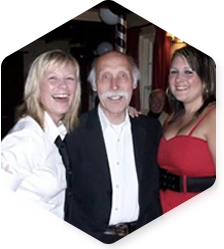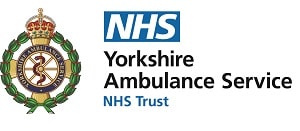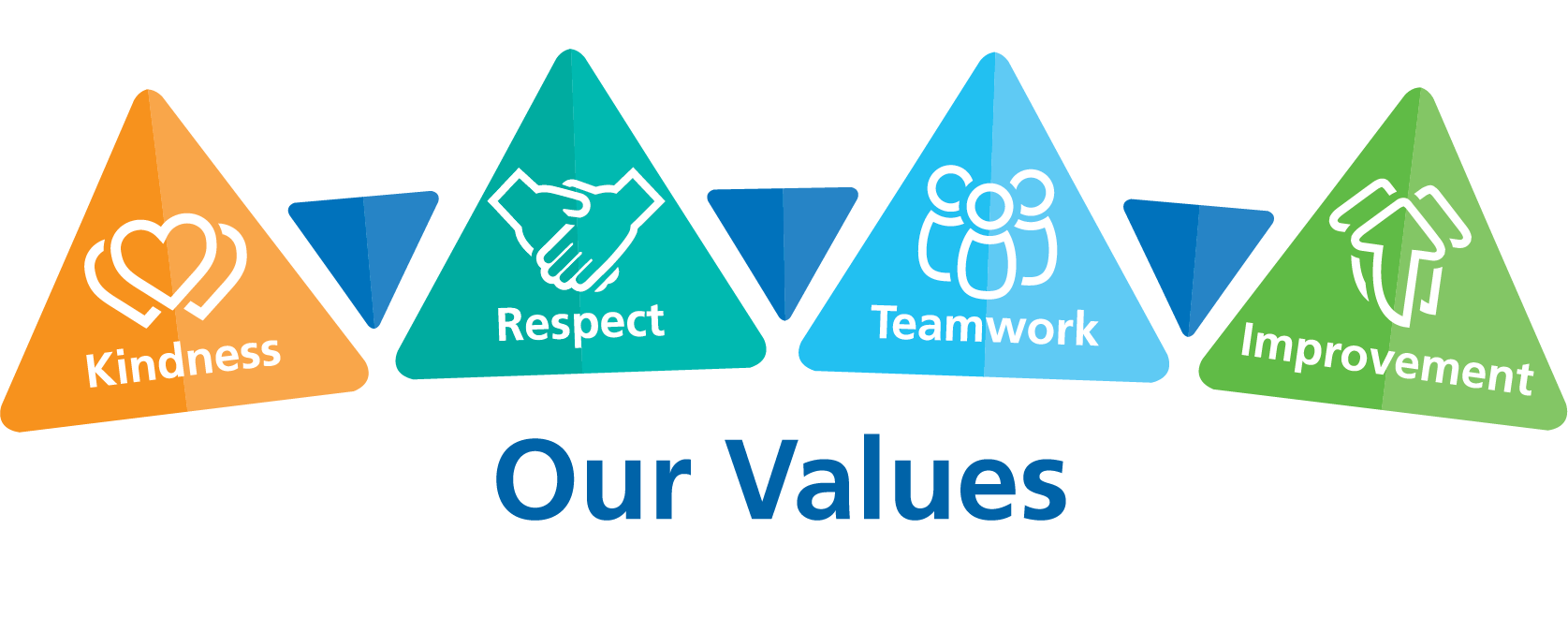Kirsty Lowery-Richardson - Lead Paramedic for Clinical Development

My dad has been my bedrock, always. He and my mum separated when I was very young, if I’m honest I don’t really remember him being at home when I was little, but then he did work away a lot travelling all over the country and abroad as part of his job. He was a partner in a Contract Cleaning Company which he set up with a friend in the 70s and grew into a hugely successful international company. My dad was a lovely, kind, polite and well-mannered man who would do literally anything for his little girls (he has two). He was smart (though he left school at 13), he worked hard, he followed sport – particularly cricket and football – in fact he played for Doncaster Rovers Youth team in his younger years. One thing I always remember, my dad was happy in his own company; yet he was a fantastic socialite too and you’d hear his roaring laugh at any party, but he also loved to sit quietly (in the sun) and read.
The changes probably started around seven years ago, my dad was in his mid-70s. He started to misplace his keys, he would ring me and would express his concerns – I used to laugh it off, saying “I always lose my keys”, but alarm bells started to ring. My dad, like me, never misplaced things, especially not his keys. The ironic thing is, now, as the dementia is taking greater hold, the habit of always carrying his keys is one of our saviours in keeping my dad safe – that’s where we keep his tracker.
Over the next couple of years dad had a couple of scares, there was one occasion when he got in his car and couldn’t remember what to do. It was a fleeting episode but he called to chat about it. Dad was on aspirin following a previous thrombosis in his eye many years before, I was worried that he’d had some sort of cerebral event and urged him to see the GP, unfortunately we were 100 miles apart and I was a new mum so I don’t think I ever followed it up. Dad would still drive to me in Yorkshire and stay with us for a few days at a time, he was chatty and ‘normal’ as far as I was aware, and he was delighted with his new granddaughter, showering her with gifts – usually unusual and collectable items.
The next couple of years saw dad start to struggle with his hearing, we simply thought he was losing his hearing due to old age, now with hindsight I’m not so sure – I think he can hear the sounds, he just struggles to make sense of it.
Dad stopped talking about politics and sport, his calls became much less frequent, when he did call he complained he couldn’t understand what I was saying. At this stage, probably early 2016, Dad could still speak well on a face-to-face basis, he was getting muddled sometimes with people and places and we were worried about him driving. We bit the bullet and arranged for him to see the doctor, we were referred to the memory clinic and a series of tests began.
The lady came to dad’s house and he was put through several tests, it was heart-breaking to see my wonderful, strong father struggling to name a rhinoceros, or to draw the time on a clock – this was upsetting and frustrating for him and he looked at me like a child looking to a parent for help (and I couldn’t), I offered words of encouragement but felt dreadful for him.
He did though smash the maths test!! His way with numbers had clearly not been lost.
Sadly when the test results came, there was a concern over dad’s spacial awareness; this meant we had to start the difficult process of stopping him from driving. He had only driven very locally for the last couple of years following the earlier scares, but he was not happy with the thought of stopping altogether. Fortunately, though his stubbornness was starting to become very prevalent, at this stage dad was still able to engage in the discussion and reason that it was the right thing to do. For the next four years dad would walk past his car (which we kept for this time to use to take him out and run errands) and fondly recall how he used to like driving. On a bad day he would demand to have his keys back as he was ‘fine to drive’.
Even before we had a full diagnosis and following some difficult but insightful and supportive discussions with the team at the memory clinic, we started the process of attaining Power of Attorney with the help of a local solicitor known to dad. This was a really tough time. Dad was still coherent enough most of the time and could manage his own affairs, meticulously as he always did. We were really careful to explain that we had no intentions of doing anything that dad didn’t want and that we were only trying to safeguard for the future. Dad also updated his will at this point. We were fortunate because within six months dad’s Alzheimer’s had progressed rapidly and we needed to assist with managing his finances.
At this time we bought dad’s first tracker, a key fob that we could access via an App on our phone. It had a button to press if there was an emergency that would open a phone call to one of us and also send a location via text. This piece of technology has been integral to our current approach of maintaining dad’s independence but implementing a level of surveillance that allows us to ensure his safety. We have since added a camera doorbell so we can see and speak to callers to his house. We also have a camera in dad’s lounge, this enables us to check in where we would have previously made a phone call, my sister and I are strict in terms of ensuring that we are using these technologies to safeguard dad in a way that we feel he would approve, he always made it really clear that he never wanted to ‘go in a home’ and we’re doing our best to keep him home as long as possible.
We did have carers coming to dad once a day to help with his medications and some light housework, it never truly worked out though we did stick with it for a couple of years. The problem is dad finds it intrusive and it tends to upset him, especially if they call before he’s dressed. We took the decision to stop the carers and manage his medications and meals between my step mother (who dad has been separated from for over 20 years) and my sister for the time being. We’re getting close to the tough decision of residential care, dad has lost bladder control and now regularly suffers urinary infections, his skin cancer is flaring up every couple of months, needing creams, he’s no longer eating well when he’s alone. It’s a huge worry because I’m fairly sure it will be the start of a decline.
To sum up my story, Alzheimer’s is the ugliest, sneakiest, most horrible disease. It slowly steals your loved ones and there is literally nothing you can do. There are good days (or minutes as it is for us now), funny and utterly heart-breaking moments, like the time my dad shouted in my face that I wasn’t his daughter (this was witnessed by two passing police officers that came to see what was going on – perhaps an anecdote for another time).
My advice on surviving this experience would be remember always the loved one behind the disease, treat them kindly and with respect, patiently have the same conversation for the 10th time that day and make no mention of it. Remember what they would want and do your very best to help that happen. Spend time being with them in the room and allow them to do the things they love.

